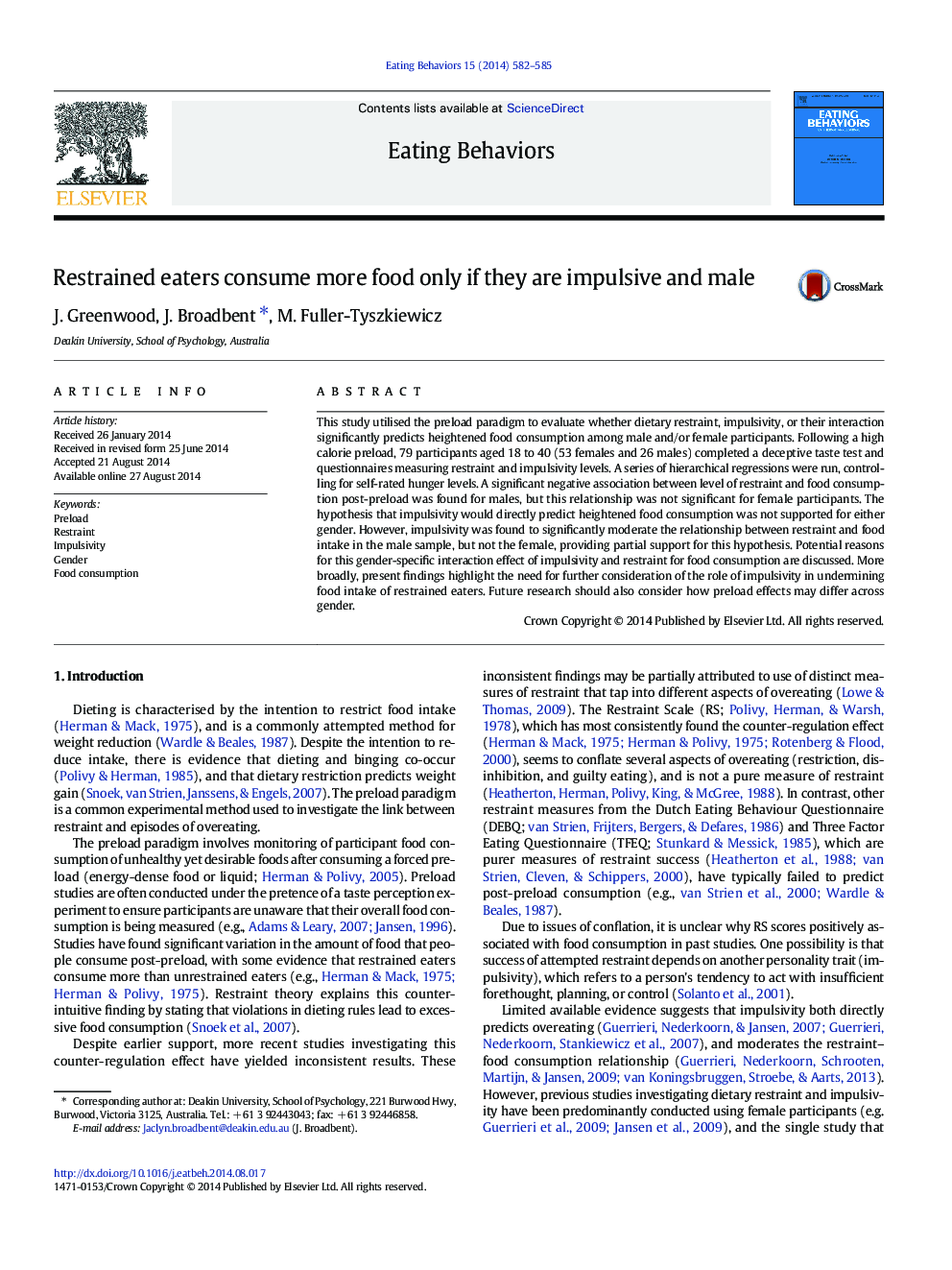| Article ID | Journal | Published Year | Pages | File Type |
|---|---|---|---|---|
| 10446864 | Eating Behaviors | 2014 | 4 Pages |
Abstract
This study utilised the preload paradigm to evaluate whether dietary restraint, impulsivity, or their interaction significantly predicts heightened food consumption among male and/or female participants. Following a high calorie preload, 79 participants aged 18 to 40 (53 females and 26 males) completed a deceptive taste test and questionnaires measuring restraint and impulsivity levels. A series of hierarchical regressions were run, controlling for self-rated hunger levels. A significant negative association between level of restraint and food consumption post-preload was found for males, but this relationship was not significant for female participants. The hypothesis that impulsivity would directly predict heightened food consumption was not supported for either gender. However, impulsivity was found to significantly moderate the relationship between restraint and food intake in the male sample, but not the female, providing partial support for this hypothesis. Potential reasons for this gender-specific interaction effect of impulsivity and restraint for food consumption are discussed. More broadly, present findings highlight the need for further consideration of the role of impulsivity in undermining food intake of restrained eaters. Future research should also consider how preload effects may differ across gender.
Related Topics
Life Sciences
Neuroscience
Behavioral Neuroscience
Authors
J. Greenwood, J. Broadbent, M. Fuller-Tyszkiewicz,
